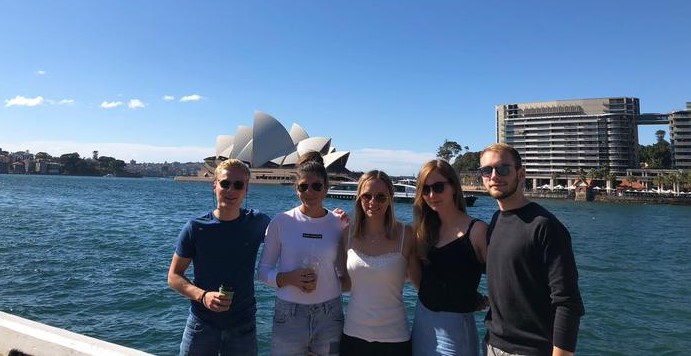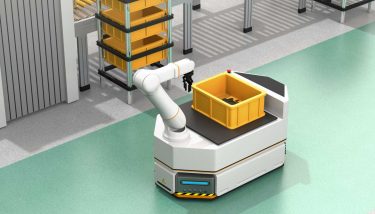Study Abroad: Rens Folkertsma

Find out what Rens Folkertsma did
during his study abroad time in Sydney!
Study programme
My study program may differ compared to the usual study abroad program. This is because my minor abroad was extra (in addition to regular degree). Therefore, there were no requirements relating my study program; I could choose my own courses, totally independent of the regular degree. Macquarie University (MQ) has a clear unit guide, where every unit is clearly described. In this way you can get an impression about the content of the course. My initial plan was to study a minor Finance, however, since I didn’t meet the prerequisites (which are quite strict at MQ), I had to change this. Eventually I followed four courses (each 3 credits = 7.5 ECTS) of different disciplines, namely Geology, Finance, Statistics and Environmental Science. Personally, I really liked the geology course, where the basics of all different types of rocks were discussed. It is great that you have the option to explore different disciplines and I can definitely recommend to choose courses from a different discipline.
Language
Obviously, the main language in Australia is English. Therefore, also at the uni all communication is in English. This is a great pro (and one of the reasons why I’ve chosen to go to Australia), because you can communicate with basically everyone which makes it easy to integrate in the culture. In general the English level of Dutch students is good compared to other internationals (especially compared to Asian students) - there is no need to worry about your English level at all. Besides this, your language skills will increase rapidly in the first weeks, since you are fully surrounded by the English language. Tip: don’t hang around with other Dutchies too much but practice your English.
Finance and other conditions
Australia, and especially Sydney, is quite expensive. The living costs and rent are not comparable to Groningen; it definitely is more expensive. However, during my time the conversion from Euro to Australian Dollar was quite favourable. In my first two months I listed all expenses, and without doing too much expensive activities/trips, the monthly expenses are approximately between $2000 - $2400, which is approximately €1300 - €1550. The main cost driver was definitely the rent, which is in general between $200 - $270 per week, depending on your living situation (shared/private room) and location (city center or on campus). The good thing, the hourly wage in Australia is also quite high ($20-$25). I can recommend to look for a casual job; it keeps the financial balance positive and besides that it is a nice way to interact with locals or other (international) students. I worked for instance as a furniture removalist, handyman and did some gardening work. Most common is hospitality work, and also at MQ there are possibilities to find a side-job.
Preparation and contacts with the faculty before, during and after your stay
Since all communication and websites are in English, it is quite straightforward to enroll in the exchange program. The process is however a time-consuming one; a lot of information is required. All in all the contact with the faculty was fine, but due to the time difference between Sydney and Groningen (8 to 10 hours), it always takes at least one day before you have a reply. Therefore, start planning your study program on time! At MQ there is a very helpful student desk, so during my time there were no issues at all. Another tip is to arrange everything which is needed after your stay (Marco Polo documents, Transcript exchange, ..) before you leave. Dealing with this in person is way quicker and convenient than afterwards via e-mail.
Housing
There are different possibilities regarding housing. Since MQ University is located in the northern region of Sydney (about an hour from CBD), there are a lot of people who choose to live on-campus (Macquarie Village) or close to the campus. Living on-campus has advantages (easy to connect with fellow internationals, close to uni), but for the same price you can also stay in the center of Sydney. Via https://flatmates.com.au/ people offer rooms, and it is really easy to arrange a viewing. I booked a hostel for my first three nights after arrival, and during this time I did several viewings. After two days I found a nice place in the center. which was instantly available. I stayed here for 6 weeks and then moved again to another house (from shared to private room). I really liked it to live in the center and for me it was worth the longer travel time from and to campus.
Culture
The Australian culture can actually be described by one word: relaxed. The people are open-minded and always helpful. Even though Sydney Is the largest city of Australia, it doesn’t feel like this when being in the city. People are patient, respect each other (for instance during traveling with public transport; way better than in Holland) and always in for a talk. However, Sydney has a very high percentage of Asian inhabitants, which is also visible in the culture. A lot of Asian dining places, especially in the surrounding of MQ, which also results in a different atmosphere, I would say more crowded and stressful. As soon as you leave Sydney and visit it surroundings, the real Australian culture is dominant. I really liked this because it feels welcoming and makes people relaxed.
Free time
During my study time, I had a lot of free time. This was mainly the result of a proper planning of the courses: I managed to have all lectures and tutorials on just two days. Besides the two days on uni, I had enough other assignments to do, but I could do this whenever it suits my planning. The MQ schedule generator is really nice; you can select your courses and then select your favourite time slots, such that you have a personalised timetable. All of this is possible to arrange online. However capacity per time slot is limited so do this as early as possible. Since I basically had five days a week without obligations, I went out for day activities/trips a lot. By bike, running or public transport: Sydney has beautiful surroundings to visit, varying from National Parks to beaches to scenic views.
Travelling
All other exchange students I have met have done a lot of traveling. Australia is such a beautiful country that you actually just have to. There is a two week study break in the middle of the semester, perfect suitable for a trip. In addition after the semester there is a lot of time, since the semester abroad finishes around the end of November and study in Holland starts in February. During my time in Australia I went to the Outback (central Australia, dessert), South coast (Adelaide to Melbourne road trip) and after the semester the East coast. Also during the period I visited a lot of nice places in the surrounding of Sydney, such as the Blue Mountains and Royal National Park. Other popular destinations for trips are New Zealand, weekend Melbourne or Tasmania. I would definitely stimulate to plan some trips and visit as much beautiful places as you can!
Other
Good to realise is the time difference between Sydney and Holland. In the beginning this was 8 hours, but this increased to 10 hours due to daylight saving time and ‘wintertijd’. This means that it requires some effort to keep in touch with home. Also, the seasons are opposite: in Australia it is winter in July and summer in January. Consequently, you don’t have a summer break in July, because the semester in Australia starts directly somewhere in July. This sounds bad but I didn’t experience it as negative, since being in Sydney also feels like a holiday. Besides this, you have summer holidays in December, where you can travel with your friends made during the semester.
Lastly, the weather/climate in Sydney is really nice: even in winter you are able to wear t-shirts. I barely used my (rain)jacket and fully enjoyed beach days all year long. I can definitely recommend to go to Sydney (or Australia, or even going abroad in general) - if you have the opportunity, go for it! Cheers!
















Comments
Log in to read and post comments